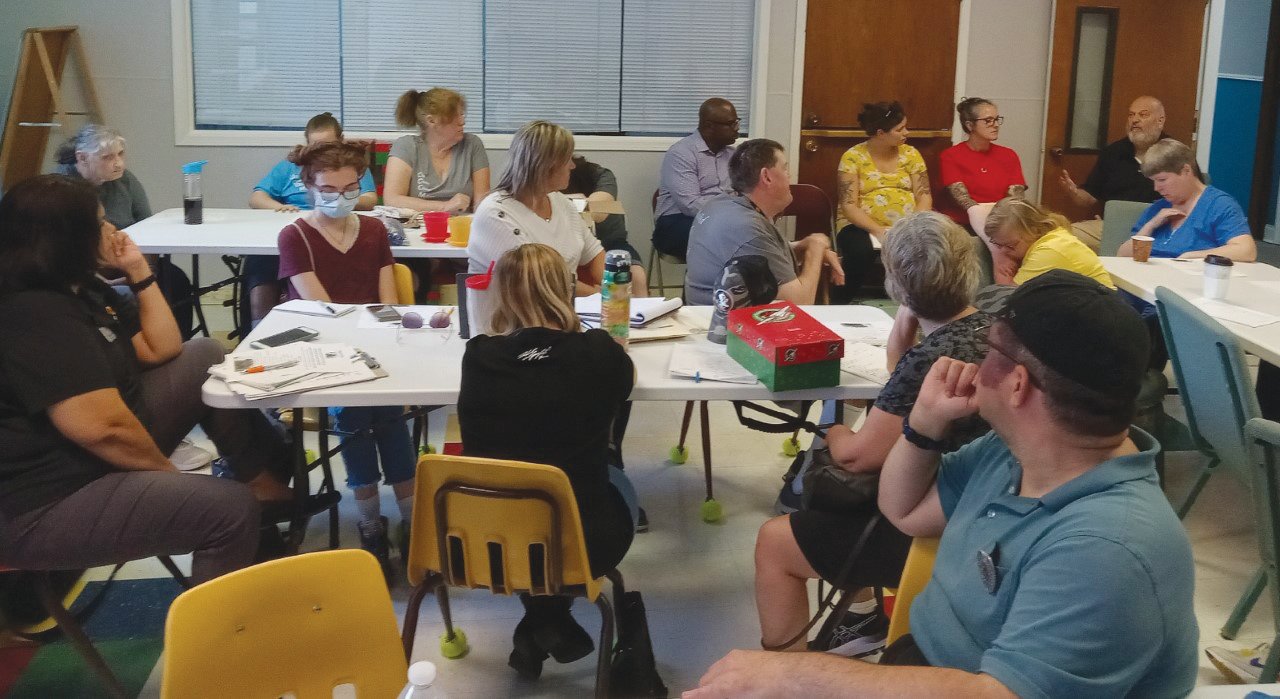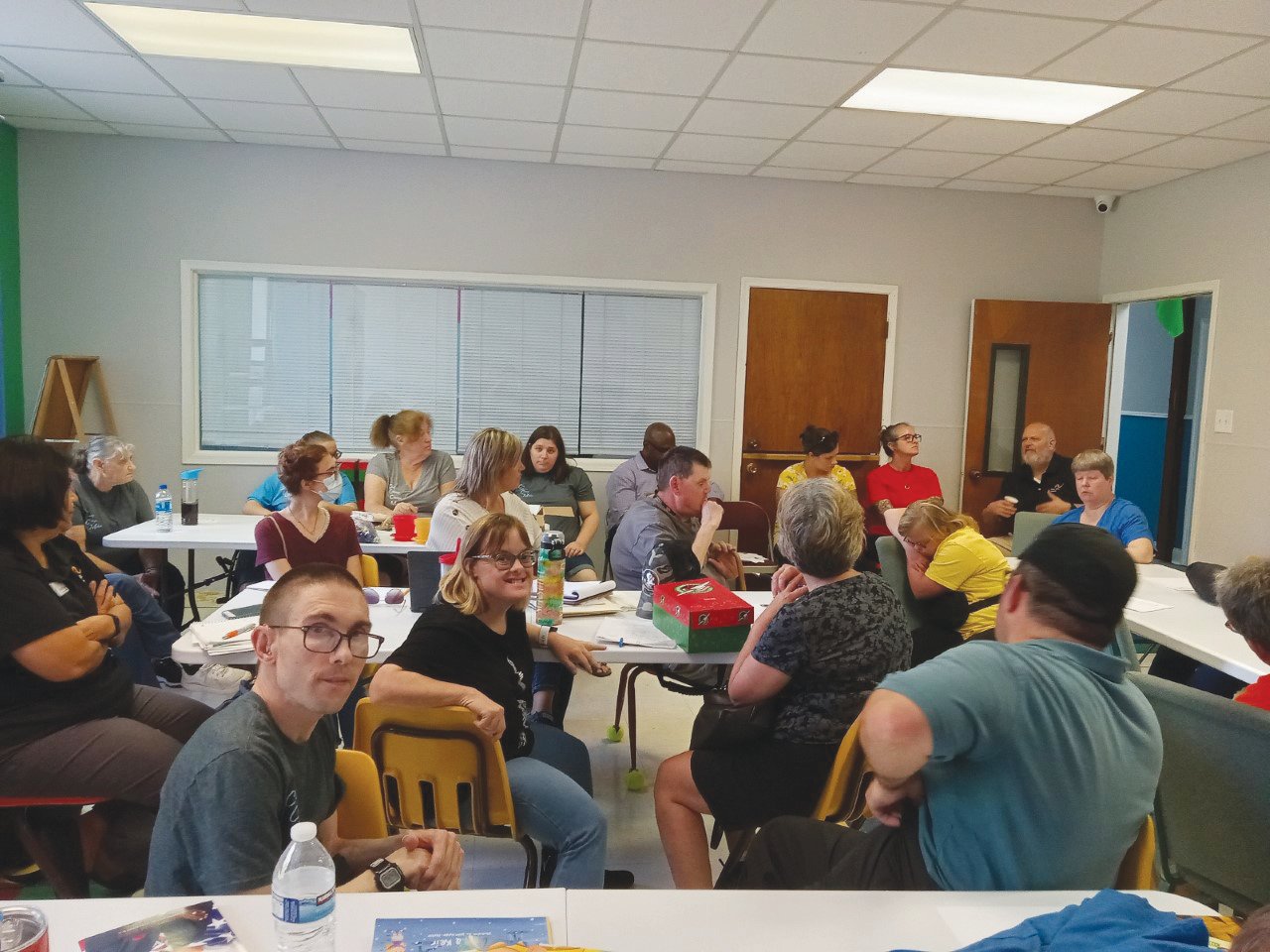Change Makers work to lessen the struggles for people with disabilities
CLAY COUNTY – Disability impacts all of us. Sixty-one million adults in the United States live with a disability, nearly a quarter of our population. In Florida, the number is even higher. Nearly …
This item is available in full to subscribers.
Attention subscribers
To continue reading, you will need to either log in to your subscriber account, below, or purchase a new subscription.
Please log in to continueDon't have an ID?Print subscribersIf you're a print subscriber, but do not yet have an online account, click here to create one. Non-subscribersClick here to see your options for subscribing. Single day passYou also have the option of purchasing 24 hours of access, for $1.00. Click here to purchase a single day pass. |
Change Makers work to lessen the struggles for people with disabilities
CLAY COUNTY – Disability impacts all of us. Sixty-one million adults in the United States live with a disability, nearly a quarter of our population. In Florida, the number is even higher. Nearly one in three adults in Florida have a disability, including more than 800,000 deaf and hard of hearing individuals and approximately 300,000 who are blind or visually impaired.
Thousands with developmental disabilities rely on the Medicaid waiver services in Florida- many with the help of a personal care assistant. And yet, the state is 49th in Medicaid Waiver funding and 46th in funding for long-term support and services.
“It’s honestly embarrassing,” says DeAnn Burgess, advisor for Clay County Change Makers, a self-advocacy group for people with intellectual and developmental disabilities. “We used to have a pretty good system from what I’ve heard and researched, but in 2008, the government started cutting a lot of services and funding. Big cuts.”
Legislators slashed as much as $1.2 billion in spending for crucial healthcare programs such as Medicaid, making it much harder for families to get the services they need.
“Not to mention the budget cut created a huge staff shortage. Even if you get on the waiver, there are no providers. If you don’t have staff, then you don’t have a program,” said former defense attorney and lobbyist, Alan Abramowitz.
Direct care workers are essential for supporting people with disabilities. They provide daily assistance for the elderly, the disabled and those living with chronic illnesses. But as many have experienced, there are not enough workers to meet the growing demand for direct care. So how does this shift the burden of families?
“Without Home and Community-Based Services, many parents are forced to quit their jobs to take care of their disabled children or admit them into institutions,” Burgess said. “I’ve gone into homes where the parents are in their 70s and lifting their adult child to the shower, the bathroom, to change their adult diapers. I’ve seen people who are nonverbal living in hospitals because there is nothing for them.”
Many states are opting to integrate the disabled population into managed care as a way to be more cost-effective. However, many people receiving long-term care are losing services as they transition from Medicaid to Managed Care.
“For example, with Managed Care, there are select dental plans,” Burgess said. “Now, there are only three dentists in North Florida that accept these plans. They don’t sedate. This population, you have to sedate at least 70% to 80% of folks because of their behavior, anxiety, the lack of flexibility, so people are going without dental care.”
This, Burgess said, was the first step into the managed care world.
“We have to save the med-waiver,” she said. “The waiver allows people with disabilities and their families to have a CHOICE in providers of their services.”
Burgess urges congress to expand Medicaid and drop Managed Care.
“If we go the Medicaid expansion, that would take care of the services and we wouldn’t be 49th in the county. There are only five or six states that have not taken the Medicaid expansion. If Florida was to take that they would see a lot of people thriving and seeing people getting the support they need,” Burgess said.
Abramowitz agrees.
“We know there are only going to be pros are there are not going to be any cons,” he said.
If this is true, then why hasn’t Medicaid been expanded? “With Medicaid expansion comes other expectations. The governor would have to follow certain rules that he obviously doesn’t want to follow,” Burgess said.
“Governor DeSantis and state republican leaders have long rejected expanding eligibility for Medicaid because of concerns about potential future costs. But this is not a political thing. This is a humanitarian crisis. This is beyond Republicans and Democrats. These are vulnerable people and we need to do something about it.”
To learn more about their mission, check out Clay County Change Makers Self-Advocacy Group-united by Different Abilities. If you want to learn more about Managed Care and how it impacts the disabled community, you can attend the North Florida Parents/Caregiver Advocacy Group on Nov. 15 at 6 p.m. at the Fleming Island Library Meeting Room.
“When people are denied services are their services are cut, we have to be vocal,” Burgess said.











